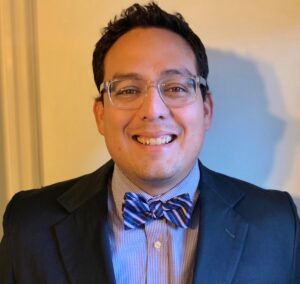Embodied Teaching
Welcome to the Wabash Center's blog series:
Embodied Teaching
What is embodied teaching? This question has been an integral part of Wabash Center conversations since the late 1990s. Early career teaching and learning workshop participants in Wabash Center workshops have discussed the notion of embodied pedagogy in a range of ways. Over 25 religion and theology faculty will contribute to this blog series. Each writer will explore some of the contours and issues of embodied pedagogy and will reflect on how contemporary multimodal communication influences student learning and takes seriously the whole self as loci for learning and knowing.
Instructions for blog writers and vlog makers:
https://www.wabashcenter.wabash.edu/resources/blog/instructions-for-blog-writers/. The instructions are focused on written blogs, yet the same principles apply to vlog creation as well.
Honorarium: Writers will be provided with a $100 honorarium for each blog or vlog post that is published on the Wabash Center website.
Sign up for our eNewsletter to receive timely announcements of Wabash Center programs.
Recent Posts
Select an item by clicking its checkbox
In a previous blog, I highlighted courage as a a key factor in teaching. It ultimately pointed to a struggle for the affections of our students. I discussed the importance of winning their affection as a key component of my work as a teacher. It is a valuable step to ...
I hinted in my previous post that maybe I should do an illustrated version of my in-process book, Zen and the Artful Buddhist: Asperger’s, Art, and Academia. I have illustrated a few pages, but it’s taking far longer than I imagined it would. This book idea has been ...
In the previous blog in this series, we learned from Ramona Quimby’s kindergarten teacher, Miss Binney, that there is value to connecting with students. To writing them notes. To communicating that they matter in the classroom. To giving a shit. But sometimes we just have no shits left to ...
My road trips contain a heavy dose of Beverly Cleary audiobooks. Traipsing around the midwestern United States, my family of six fills the time by listening to the antics of Henry Huggins and Ramona Quimby read aloud by Neil Patrick Harris (quite frankly, it’s his very best work) and ...
At the end of semesters, I often share a joke with my colleagues: “I love teaching – except for the grading!” There’s a truth hidden in that humor. Grading involves a host of emotions: joy, frustration, pride, disappointment, even confusion. Then, once we’ve finally completed the grading marathon, another ...



